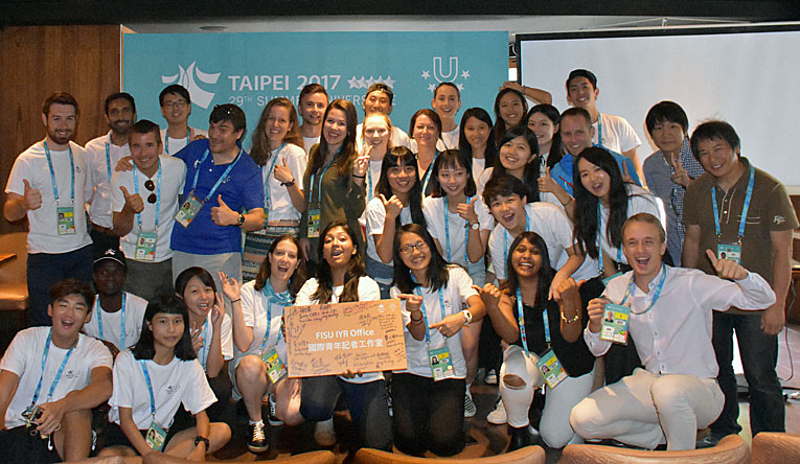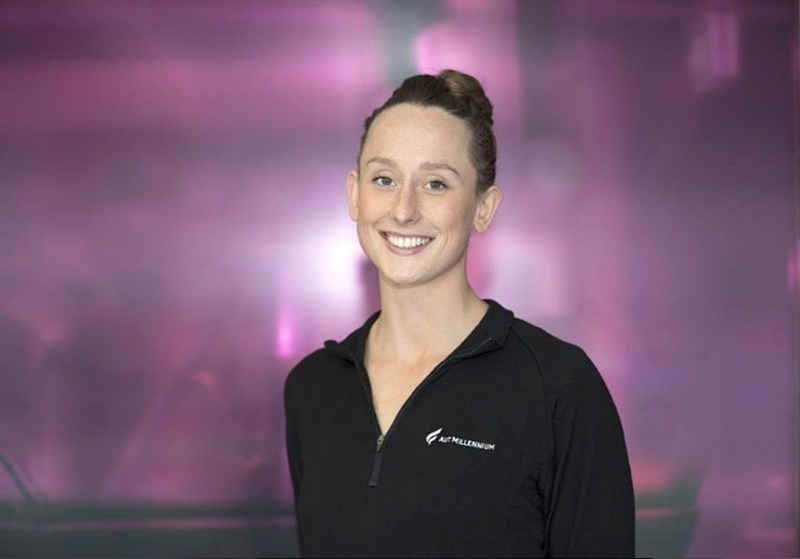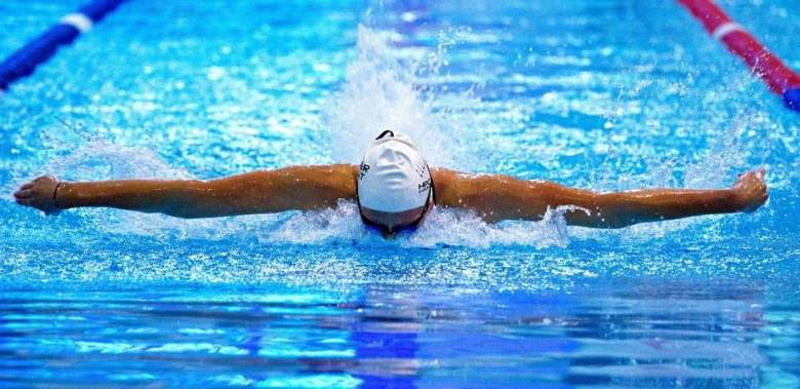What's up: Lessons learned from YRP2017

The 4th FISU Young Reporters’ Programme was held during the Summer Universiade 2017 in Taipei. FISU offered unique experience to 13 international young reporters, who joined 12 of their Taiwanese peers.
The selected participants spent their days attending seminars in the mornings and doing fieldwork in the afternoons, interviewing athletes, talking to volunteers, looking for a creative angles and seeking human interest stories for the Taipei Talks, a new digital publication which was produced daily by FISU.
Among the selected 13 international reporters, four came from Europe: Laetitia Beraud (FRA), Sergey Chernov (RUS), Leticia Dawidowicz (BEL) and Karl Sundstrom (SWE). One of the young reporters, Laura Quilter (NZL), summed up her experience and lessons learned.
There are 13 days of competition at the 29th Summer Universiade in Taipei City. Over 300 hours of education, action and experience as a reporter during a multi-sport games-situation, here’s what I've learned…
1. Research, research, research.
The more you know, the better your articles will be. Curiosity is king. Learn about the athletes, the games, the schedules and bus timetables…
2. Back up your work.
Not just your words. Your photos. Your videos. The pain of losing content during the Games is enough to send you running to your un-used hotel bed.
3. I could probably spend two weeks on the FISU website learning about the associations history and still learn something new every minute.
Summer Universiade. Winter Universiade. World University Championships. World University Leagues. Educational Services. International Day of Sport. You get the idea…
4. Fake eyelashes and bright lipstick are fantastic tools to hide the tired
Sleep is a luxury not enjoyed by many reporters at multi-sport events, this is definitely a media-life-hack…
5. Respect. Respect. Respect.
I spoke with innumerable volunteers and organisers who committed hours every day to help anyone that needed it. From the village to the venues, the MPC and security, the sheer amount of help and kindness was awe-inspiring.
6. Sport is so much more powerful than medals and podiums
Sport as expression, sport as a self-saviour, sport as social tool. Attending a multi-sport event is a window in to new worlds. I met rhythmic gymnast who described how the music ‘chose’ them. I learned about the “Judo for Peace” project, that looks to educate and connect people from around the world.
7. There is support and out there.
On the verge of retirement? Injured? Overwhelmed or confused about what’s next? As a young reporter at the Universiade I have experienced, first-hand, how many people genuinely care and are willing to help if you keep your eyes and ears open.
8. Put your ego at the door
Communicate when you are struggling, don’t be afraid to ask dumb questions in the mixed zone and get off your butt to talk to the people around you (remember point 1).
9. Pressure creates diamonds.
Reporting at a major multi-sport event? It’s relentless, and it’s amazing. The late nights, the stress, the missed buses and rushed articles are only temporary. The pressure, the adrenaline, the energy and experience are not things that happen in everyday life. Ride the tough times and give yourself completely to the unexpected moments, the unforgettable conversations and new tastes. As American journalist and humarist, Arthur Baer put it “A newspaper is a circulating library with high blood pressure”.
10. Satisfaction is hitting that little ‘x’
There’s nothing more cathartic than closing 14 internet tabs, three Word documents and an Excel spreadsheet after submitting a stunning article
11. Keep your eyes and ears open, then jump in!
Go watch different sports, strike up random conversations and leave your shyness at the door. As Susan Jeffers puts it, “rejection is rejection—wherever it is found. So you begin to protect yourself, and, as a result, greatly limit yourself. You begin to shut down and close out the world around you.” Did it hurt getting cold looks from athletes who didn’t want to interview? Yup. Did asking dumb questions about sports I didn’t understand intimidate me? Yup. Did it stop me from chasing stories and pushing myself to learn more? No.
12. EVERYONE has a story to tell
Boston, the Main Press Centre (MPC) manager, averaged between three and five hours sleep every night during the two-week Universiade to ensure that everything was ready and working for over 900 press representatives who attended the Universiade. He was also the one who suggested that a prayer room be included in the MPC, which was not a requirement for the facility. Dennis, one of the FISU local young reporters, was involved in a major car crash earlier this year which helped to re-calibrate the way he looks at life, to never stop enjoying it. (He also makes great videos of his adventures around the world!) One of the volunteers inside the MPC, who wore stunning purple glasses, is a retired Sports Professor from a university in Taipei. Everyone has a story. Period.
13. Smile.
“We can’t control the world (or the bus schedule or missed interview..) but we can control our reactions to it” – Susan Jeffers. Don’t let the challenges keep you down. As a Young Reporter at the 2017 World Universiade, I have learned to confront my fears, challenge myself intellectually, emotionally and even physically. It is an experience I will never forget, and I can’t stop smiling. 
The author Laura Quilter has been a competitive athlete for over 15 years, a swimmer and a surf lifesaver, and has recently obtained her Bachelors' degree in communication at the Massey University.
Are you a student with an opinion? We are looking for new contributors for our student column every month. Feel free to contact stc@eusa.eu to offer a piece or propose a topic.
